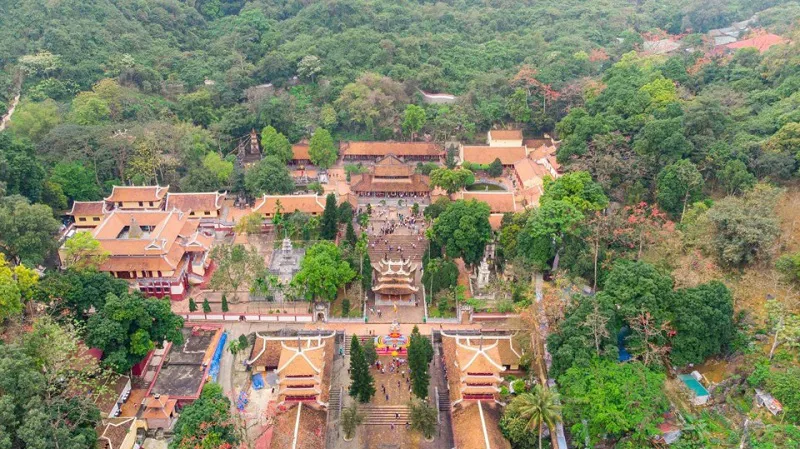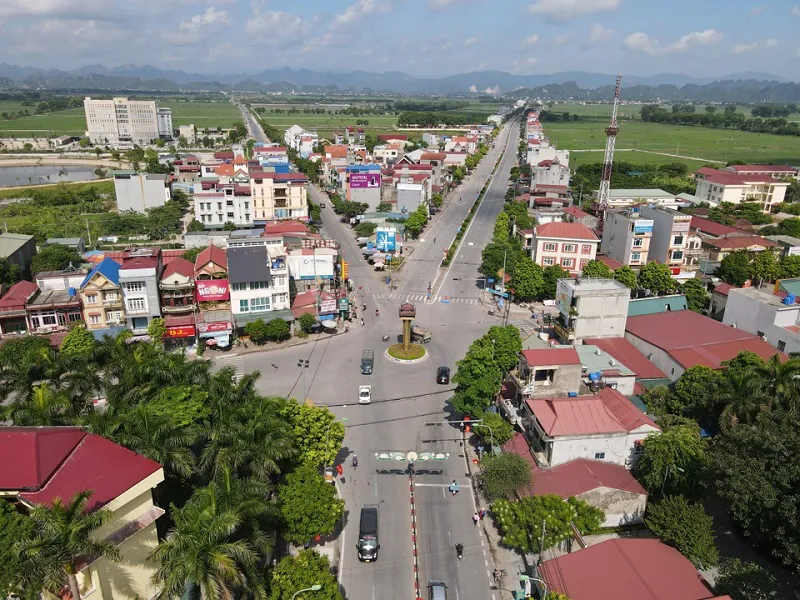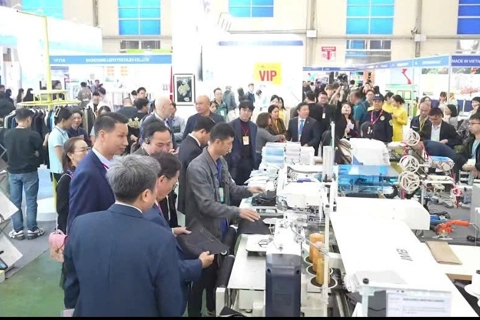My Duc made socio-economic progress under Resolution 15
By the end of 2022, the district's total revenue was about VND2.8 trillion (US$118 million), an increase of 6.4 times since 2008.
Over the past 15 years, My Duc District, Hanoi has overcome challenges and made significant socio-economic achievements.
| Welknown Huong Pagoda complex in My Duc District, Hanoi. Photo: Pham Hung/The Hanoi Times |
My Duc is a district located about 50 kilometers to the south of Hanoi. It is famous for Chua Huong (Huong Pagoda) heritage with Huong Tich Cave, scenic and rich in history.
My Duc, along with other districts of former Ha Tay Province, became part of Hanoi on August 1, 2008, when National Assembly Resolution 15/2008/QH12 on administrative boundary adjustment came into effect.
Since becoming part of Hanoi, My Duc District has earned increasing economic values. By the end of 2022, the district reported a total revenue of about VND2.8 trillion (US$118 million), an increase of 6.4 times in 2008.
Transport infrastructure has improved. Now, the district's road network has nearly 938 km to every commune and ward.
Science and technology have been a vital component of agricultural and industrial production. By adopting new technological solutions, the people of My Duc are able to increase productivity and product quality, and reduce labor.
The technological solutions have helped local producers to mechanize some of their cultivation and harvesting stages. In particular, the drip irrigation system has proven effective and is widely used by farmers.
The district has also made progress in economic restructuring, despite the negative impact of the Covid-19 pandemic. At the end of 2022, trade-services-tourism activities accounted for 41.7% of its economic value, followed by agriculture-forestry-aquaculture (24.1%), and industry and construction (34.2%).
In order to promote sustainable and rapid socio-economic growth, My Duc takes agriculture as its foundation and tourism services as its spearhead. Accordingly, the district has three hotels and 125 accommodation facilities with a total of 1,250 rooms.
These facilities are often upgraded on a regular basis. In 2023, the district is expected to welcome 1.2-1.3 million visitors and earn around VND900 billion (US$38 million) from tourism.
In early 2023, My Duc District successfully hosted the Chua Huong (Huong Pagoda) Festival, which featured some updates such as selling e-tickets and providing e-vehicles to take visitors around the heritage site. During the festival, which ran from January 23 to April 23, My Duc received more than one million visitors to Huong Pagoda.
According to the My Duc District People's Committee, the average per capita income in 2023 is estimated at VND62.3 million (US$2,620), up 7.4% from last year and 8.4 times higher than in 2008.
The percentage of poor families is now 0.33%, and all residents have access to clean water, healthcare, and education. In particular, about 72.5% of the 80 local schools have met national standards, and the percentage of trained workers is 83%. My Duc has also met the requirements to become a new rural district, along with Ba Vi and Ung Hoa districts.
Limitations
According to Dang Van Trieu, Chairman of the district People's Committee, the slow implementation of investment activities and the lack of tourism products and services are among the major obstacles that have undermined its development.
| A corner of My Duc District. Photo: Pham Hung/The Hanoi Times |
The construction projects is lagging behind due to lack of funds, and the application of science and technology for innovation is somehow neglected, he said.
By 2025, the district will continue to overhaul its local economy by increasing the share of tourism, trade, and services, developing collective high-tech agricultural farms, and designing rural areas according to a proper urban development plan.
The district authorities will continue to raise funds to build mass infrastructure and promote socio-economic growth while schools, environmental protection facilities and clean water plants are among the priorities.
The local government will also speed up the development of a master plan to preserve Huong Son's heritage and a plan to develop the My Duc area, Trieu added.
Strict measures will be taken to better manage cultural activities, educate people on preserving historical and cultural values and heritage, and improve management performance.
Nguyen Manh Quyen, Deputy Chairman of the Hanoi People's Committee, urged the district to review its industrial cluster development plan.
He suggested that My Duc work with the Department of Transport to adjust the frequency and schedule of buses, and develop roads and parking lots to improve the experience of people visiting Huong Pagoda.
"The district needs to further develop commercial activities, create a link between communes, increase state budget revenues, and improve the living standards of local people," Quyen said.
"My Duc must seize the opportunity to realize its regional development plan and create a great driving force for socio-economic growth," he said. "Greater efforts are needed to promote the development of transportation projects for travel and tourism development and the movement of goods," Quyen concluded.













